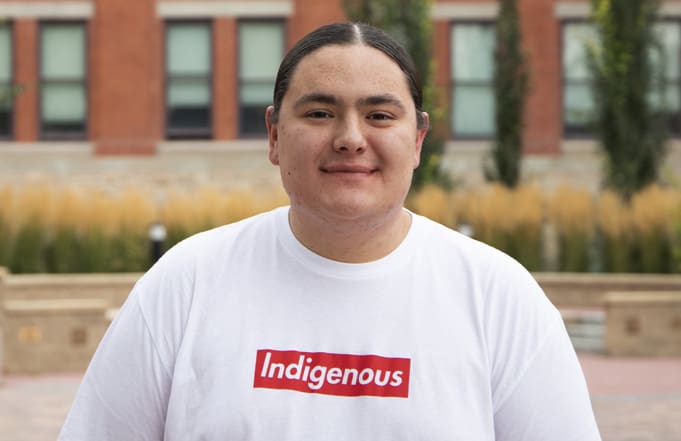October 10, 2018
Tristin Bullshoe, a biology major and senior at Montana Western, participated in a research internship this summer at the University of Utah Health Sciences in Salt Lake City.

Bullshoe’s mother is a school counselor and introduced him to the 10-week program. The Native American Summer Research Internship (NARI) is located at the University of Utah School of Medicine and funded by the National Institutes of Health for Native American students interested in the health science field.
Bullshoe was the only undergraduate from Montana out of over 20 participants from all over the United States.
“It was cool to meet with students that come from a similar background and are interested in STEM,” said Bullshoe. The program is designed for Native Americans who are interested in gaining research experience.
When Bullshoe arrived in Salt Lake City, he was given the topic of kidney research and paired with mentor and nephrologist, Kalani Raphael, MD. Bullshoe had a unique experience because he was able to be in the lab and gain clinical experience, while also shadowing Dr. Raphael at the VA clinic.
“Experience One helped me go into this internship with skills that I was able to use on my first day of working in the lab. I hit the ground running and already knew some basic lab techniques. Also, creating a bond with a person in academia was familiar to me because you get to interact one on one, just like I already do with my professors at Montana Western,” said Bullshoe.
During the internship, Bullshoe and Dr. Raphael studied chronic kidney disease, specifically when it is found in someone with diabetes. Six months prior to Bullshoe’s arrival, Raphael did a trial where half of his patients received sodium bicarbonate (baking soda) and half received a placebo. Samples necessary to the research project were also previously collected, so Bullshoe and his mentor were able to head right into research at the start of the internship.
They looked at different markers, hypothesizing that there would be a decrease in the markers if the baking soda, an alkaline compound, was helpful by reducing ammonia levels in the patients involved in the study.
During the last two weeks, they felt they had made an exciting observation.
“It was really cool to see the results. We thought the ammonia levels would change in the patients, but they didn’t. We did see an increase in the estimated glomerular filtration rate (EGFR) though, which measures the function of the kidneys. It didn’t fit our hypothesis, but it indicated it did in fact help overall kidney health, we were just looking at the wrong markers,” said Bullshoe about concluding his study with Raphael.
Participating in this research felt rewarding to Bullshoe because Native Americans have a higher rate of diabetes than the general population.
“I believe our research may have an impact on the health disparity that Native Americans face,” said Bullshoe.
Bullshoe plans to graduate in spring 2019 and apply to graduate school soon after. He is focusing on pursuing graduate programs that offer opportunities to practice in Native American communities.